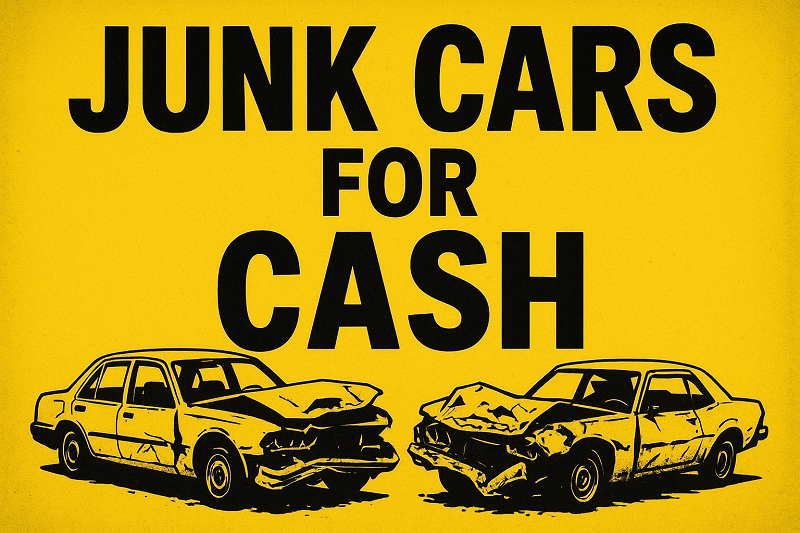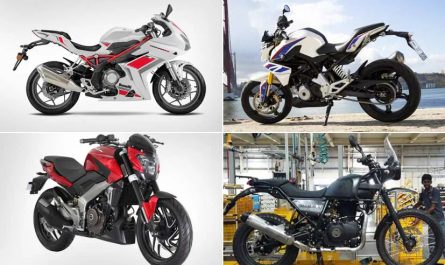Getting rid of a junk car used to be a headache. You’d have to pay a tow truck, figure out where to dump it, or let it rust in your driveway. But now, the idea of exchanging junk cars for cash has changed the game. Thousands of people across the country are turning their unwanted vehicles into money, fast and with no hassle. Whether it’s a dead engine, a totaled ride, or just a vehicle that’s outlived its usefulness, there’s value in your old car. This guide will help you understand how to turn your junk car into instant cash, why it’s a smart move, and what to expect during the process.

What Exactly Is a Junk Car?
A junk car is typically a vehicle that is no longer roadworthy, too expensive to repair, or simply unwanted. This can include cars that have been in major accidents, vehicles with blown engines or transmissions, or cars that have been sitting unused for years. Even if it looks like a pile of scrap, your car still has value – in parts, metal, and resale potential. Junkyards and car buyers specialize in seeing value where others see waste. That’s why they’re willing to pay cash for vehicles others won’t touch.
Why Sell Your Junk Car for Cash?
There are several reasons to sell your junk car for cash, and it’s more than just getting rid of it. For starters, you’ll get paid. Most junk car buyers offer cash on the spot, which means instant money in your hand. It’s also eco-friendly. Junking your car means it gets recycled, repurposed, or used for spare parts – all of which help reduce environmental waste. Plus, removing that old eyesore frees up space in your garage or driveway. You might even get better HOA ratings or avoid city fines for having inoperable vehicles on your property.
How the Junk Car for Cash Process Works
Selling your junk car is simpler than ever. The process typically starts with an online or phone quote. You provide details about your car – make, model, year, condition, and whether it has a title. Based on this information, the buyer gives you an offer. If you accept, they’ll arrange a pickup time, often within 24 to 48 hours. A tow truck arrives, you hand over the keys and title (if available), and they hand you cash. Many services handle all the paperwork, so you don’t have to deal with DMV headaches.
Documents You Need to Sell a Junk Car
In most states, the only essential document you need to sell your junk car is the title. This proves ownership and allows the buyer to legally take possession. However, some buyers may accept vehicles without titles, especially if the car is old or the title is lost. In such cases, they may require additional identification, vehicle registration, or a bill of sale. Always check your state’s laws or ask the buyer what’s needed. Having the VIN (Vehicle Identification Number) ready can also speed up the process.
Who Buys Junk Cars for Cash?
A variety of businesses and individuals are in the market for junk cars. These include local junkyards, scrap yards, car recycling companies, used auto parts dealers, and national car-buying services. Some companies specialize solely in junk cars and operate online with nationwide coverage. There are also private buyers who flip cars or salvage parts. Your best option depends on your location, car condition, and how quickly you want the deal done. Comparison shopping can help you get the best cash offer.
How Much Cash Can You Get for a Junk Car?
The cash value of a junk car varies widely. Factors that determine the price include:
- Vehicle make, model, and year – Some brands are in higher demand for parts.
- Condition – Is the engine running? Are any parts salvageable?
- Weight and metal content – Heavier vehicles with more scrap metal are worth more.
- Location – Prices vary depending on your region and scrap metal market.
- Market demand – Cars with popular parts may bring more money.
On average, junk cars sell for anywhere from $100 to $1,500. Older cars with no working components may fetch scrap prices, while vehicles with working engines or intact body parts can earn significantly more.
How to Maximize the Value of Your Junk Car
To get the most cash for your junk car, it pays to be strategic. First, compare quotes from multiple buyers. Some may offer free towing, while others charge a fee – which reduces your payout. Next, remove personal belongings and any custom upgrades you can resell separately. If your battery, rims, or stereo are in good shape, you might be able to sell them individually for extra money. Providing accurate information about the vehicle’s condition helps ensure a fair quote. Finally, make sure your car is easily accessible for towing – no one wants to haul a car out of a ditch or under a pile of snow.
What Happens to Junk Cars After They’re Sold?
Once your car is sold, it usually goes to one of several places. If it has usable parts, it may be stripped and the parts resold. Mechanics and DIY car owners often buy second-hand parts for a fraction of new ones. If the vehicle is completely inoperable, it’s often crushed and sold for scrap metal. The fluids are drained, hazardous materials are removed, and the remaining metal is processed for recycling. In some cases, cars may be refurbished and resold, especially if they’re still in decent shape or rare.
Legal Steps After Selling Your Junk Car
Once you’ve sold your car, make sure to follow through with the necessary legal steps. If you signed over the title, the buyer is now responsible, but you should still notify your local DMV or licensing agency that you no longer own the vehicle. This can protect you from liability if the car is used illegally or towed before being recycled. Cancel your insurance policy and remove the vehicle from your registration list. Some states require a formal release of liability, which you can submit online or by mail.
Common Scams to Avoid
While most junk car buyers are legitimate, there are scams to watch out for. Be cautious of buyers who:
- Offer unusually high cash amounts but reduce the price on arrival.
- Ask you to pay for towing upfront.
- Refuse to provide a written offer or proof of payment.
- Don’t require a title but don’t offer paperwork.
- Request personal or banking information.
Always deal with reputable companies or individuals with verified reviews. Don’t sign over your title until you’ve been paid. Using a company with a physical location or clear online presence can provide extra peace of mind.
Online vs. Local Junk Car Buyers: Which Is Better?
Both local and online junk car buyers have advantages. Local buyers can sometimes pick up your vehicle the same day and offer competitive pricing if they’re located near you. You also have the benefit of face-to-face interaction. Online buyers, on the other hand, offer convenience and nationwide reach. Many provide instant quotes, free pickup, and guaranteed offers. If you live in a remote area or don’t want to negotiate in person, online may be the way to go. It’s often best to get quotes from both and decide based on convenience and payout.
Can You Sell a Junk Car Without a Title?
Yes, but it depends on where you live and who’s buying. Some junk car buyers will purchase vehicles without a title, especially if they’re just being scrapped. However, this can reduce the amount they’re willing to pay. If your title is missing, contact your state’s DMV to apply for a duplicate. A clean title proves ownership and gives buyers peace of mind. If you inherited a car or bought it without transferring the title, getting legal documentation is essential before trying to sell.
Environmental Benefits of Junking Your Car
Junking your car isn’t just about making money – it’s also good for the planet. Recycling a junk car saves raw materials, reduces pollution, and conserves energy. The metal can be melted down and reused to create new vehicles, appliances, or construction materials. Proper disposal of oil, antifreeze, and batteries prevents harmful chemicals from contaminating soil and water. Many auto recyclers are certified under environmental protection programs and follow strict guidelines. So, when you sell your junk car, you’re contributing to a more sustainable world.
Tips for a Smooth Transaction
- Be honest about your car’s condition. Surprises can cause price drops.
- Remove personal belongings, plates, and important documents.
- Know your state laws regarding car transfers and junking.
- Choose a buyer with good reviews, licensing, or BBB accreditation.
- Ask if towing is free – many buyers include it, but not all.
- Get a bill of sale to finalize the transaction officially.
Final Thoughts: Turn Trash into Treasure
Getting rid of a junk car doesn’t have to be a burden. It’s a smart way to earn money, help the environment, and free up valuable space. Whether your car has been sitting in your yard for years or just broke down beyond repair, there are buyers ready to give you cash for it today. With a bit of research, a few phone calls, and a clear title in hand, you could turn your old ride into hundreds or even thousands of dollars. Junking your car is no longer the last resort – it’s the smart, responsible, and profitable choice.
Frequently Asked Questions (FAQs)
How long does the process take?
Most junk car sales are completed within 24 to 72 hours, including pickup and payment.
Do I need to be present when the car is picked up?
Yes, in most cases, the owner or a legal representative needs to be present to sign paperwork and hand over the keys.
Can I sell a car that doesn’t run?
Absolutely. Many junk car buyers specialise in non-running vehicles and will tow it for free.
What if my car is missing parts?
You can still sell it, though the offer may be reduced depending on what’s missing.
Is it better to sell to a junkyard or donate the car?
If you’re looking for cash, selling is best. If you want a tax deduction, donating may be the better choice.


